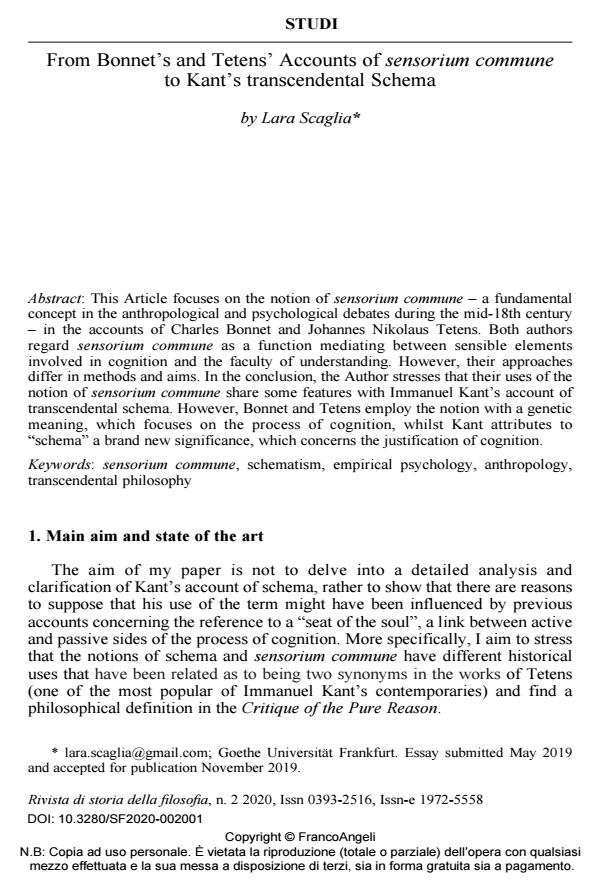From Bonnet’s and Tetens’ Accounts of sensorium commune to Kant’s transcendental Schema
Titolo Rivista RIVISTA DI STORIA DELLA FILOSOFIA
Autori/Curatori Lara Scaglia
Anno di pubblicazione 2020 Fascicolo 2020/2
Lingua Italiano Numero pagine 18 P. 159-176 Dimensione file 417 KB
DOI 10.3280/SF2020-002001
Il DOI è il codice a barre della proprietà intellettuale: per saperne di più
clicca qui
Qui sotto puoi vedere in anteprima la prima pagina di questo articolo.
Se questo articolo ti interessa, lo puoi acquistare (e scaricare in formato pdf) seguendo le facili indicazioni per acquistare il download credit. Acquista Download Credits per scaricare questo Articolo in formato PDF

FrancoAngeli è membro della Publishers International Linking Association, Inc (PILA)associazione indipendente e non profit per facilitare (attraverso i servizi tecnologici implementati da CrossRef.org) l’accesso degli studiosi ai contenuti digitali nelle pubblicazioni professionali e scientifiche
This Article focuses on the notion of sensorium commune - a fundamental concept in the anthropological and psychological debates during the mid-18th century - in the accounts of Charles Bonnet and Johannes Nikolaus Tetens. Both authors regard sensorium commune as a function mediating between sensible elements involved in cognition and the faculty of understanding. However, their approaches differ in methods and aims. In the conclusion, the Author stresses that their uses of the notion of sensorium commune share some features with Immanuel Kant’s account of transcendental schema. However, Bonnet and Tetens employ the notion with a genetic meaning, which focuses on the process of cognition, whilst Kant attributes to "schema" a brand new significance, which concerns the justification of cognition.
Parole chiave:Sensorium commune, schematism, empirical psychology, anthropology, transcendental philosophy
Lara Scaglia, From Bonnet’s and Tetens’ Accounts of sensorium commune to Kant’s transcendental Schema in "RIVISTA DI STORIA DELLA FILOSOFIA" 2/2020, pp 159-176, DOI: 10.3280/SF2020-002001